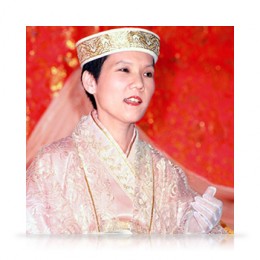|
|||||||
| If you have any questions regarding downloading or website use of EdenRules, please contact us. | |||||||
- Summary
Master discussed a book which mentioned that the Quan Yin Method is ancient. It states that even if for just a short while, such as a couple of hours, half an hour, or over ten minutes, one practices spiritually, gets in contact with Tao and thinks about Tao, one’s heavy karma accumulated through many lifetimes will be cleansed. It is further explained that there are many aspects in spiritual practice. It’s called Sat-Sang in India, which means contacting the Truth and being one with the Truth. There are many different kinds of Sat-Sang…
Sometimes, we need someone to remind us of the benefit of spiritual practice so that we can remember. Otherwise, being in contact with too many people in the world 24 hours a day and staying with those whose spiritual level is not high, we will be dragged down a little by their nonspiritual atmosphere and their mundane mentality. We will then become distracted, busy doing the worldly things with them, caring about worldly affairs and forgetting for a while the things we should do and our most important goal. Therefore, it’s very beneficial to be with enlightened beings, with Buddha and saints. It means it’s beneficial to be with fellow practitioners and the enlightened Master.
There is a saying in India, “If you have time and are able, you should see the Master every day; if you can’t do it, you should at least see Hirm every two or three days; If you can’t do that, you should see Hirm once a week; if you can’t do that, you should see Hirm every two weeks at least; if you can’t do that, you should see Hirm once a month; if you can’t do that, you should see Hirm once every few months; if you can’t even do that, then try to see Hirm once a year; if you still can’t do that, you should at least see Hirm once in your life.”
Shakyamuni Buddha’s disciples asked Hirm to explain what Ananda did in the past that sowed the seed of his incredible intelligence in this life? They meant he could remember everything. Whatever Buddha said, he remembered without missing one sentence.


